- Home
- Catherine Coulter
Backfire fst-16 Page 9
Backfire fst-16 Read online
Page 9
“So that’s where we focused. And after a couple of hours of phone calls, we found a small boutique inn off Highway 280 near Atherton, called Pelican Eave. The manager remembered the man, and the car. Yep, the same car the parking attendant described to us. ‘Overdue to be traded in,’ she said. She said he introduced himself as James Connor and he always wore his sunglasses and ball cap—though she remembered it as an Oakland A’s cap—even when he drank tea by himself in the front parlor. Since he paid in cash upfront, for two weeks, she never asked to see any identification. A pity.
“We have agents out there surveilling the inn. She hasn’t seen him since Thursday, the day of the shooting.
“We’ve got an APB out for the car as we speak, and his drawing and description at the local airports and all the cop shops in the Bay Area. I don’t think we’ll find him anywhere close to Atherton.”
Sherlock looked at Agent Griffin Hammersmith. “Why?”
“It’s my opinion he’s not about to take the risk of going back to the Pelican Eave.” Griffin cleared his throat. “Well, I’ll bet this guy is alarmed. I mean, he knows now Judge Hunt is alive, and if he wants to try again he has to stay in the area. He also knows it’s riskier for him now, and I think he might dump the old Charger and stay closer this time, more in the center of things, where he can blend in with the tourists. If I were this guy or this gal, I might change how I look and stay at one of the dozens of small hotels and motels on Lombard Street or at Fisherman’s Wharf.” Griffin splayed his hands. “This is all a guess, guys, so—”
Harry laughed. “And your point would be, Griffin? Your so-called guesses are almost always right.”
Griffin said, “The thing is, though, our guy—or this Sue—has been in and out of San Francisco for at least a week, maybe longer. That’s long enough to learn how to keep out of sight.
“We’ve got agents canvassing the hotels starting on Lombard and at Fisherman’s Wharf, with his drawing. Thanks to Lieutenant Trolley, we’ve got us a half-dozen SFPD to help.” He nodded to her, and Virginia said, “Our pleasure.”
Harry sighed. “I’m wondering why don’t you just tell us which hotel Sue’s staying at, Griff, so we wouldn’t have to waste all this time?”
This time everyone laughed.
Now that he’d seen Griffin Hammersmith in action, Savich was wondering if he could get him to relocate to Washington. He bit into the last slice of Veggie Heaven, now cold, and said, “Honestly, I don’t think putting that drawing through the facial recognition program will get us anything, what with the ball cap and sunglasses.”
Cheney said, “Maybe we’ll get lucky and Sue will drop the ball cap; then we could try the FRP. One last note: We still don’t have anything about our missing prosecutor, Mickey O’Rourke. We’ve talked to his prosecution team, his co-workers, his family, his friends. We have him on camera leaving the Federal Building by himself late Thursday morning, though he never told anyone in his office he was going out. We’re examining his phone records, his credit card bills, but as of yet we don’t have anything very helpful. His wife, as you can imagine, is a mess.
“Her name’s Melissa. She told us Mickey had seemed distracted the last week or so, but he wouldn’t tell her what was wrong. She did remember he kept asking his two daughters where they were going and when they’d be home every time they stepped out of the door, which makes it sound like O’Rourke was frightened. Because of the Cahills or this Sue? We don’t know if he skipped or if he was taken by someone, but the longer he’s gone, the worse it looks.”
Hoover Building
Washington, D.C.
Saturday afternoon
Agent Dane Carver studied the young man sitting opposite him and Agent Ruth Warnecki Noble in one of the small interview rooms on the third floor of the Hoover Building. Ted Moody was bouncing his leg up and down, and kept his eyes on his bouncing leg, as if afraid if he looked them in the eyes they’d shoot him.
Dane sat with his arms crossed over his chest, his expression hard. “You don’t look like a street punk, Mr. Moody, but I’ve been wrong before. How long have you been doing crap like this?”
The young guy flinched, raised his head, his eyes blinking furiously. “I didn’t do anything wrong, not really. I mean, I don’t know why those agents came and forced me to come with them. I have to get to work or Mr. Garber will fire me.”
Ruth said, “I spoke to Mr. Garber, told him you were assisting us, so your job is safe. But you did do something you shouldn’t have done.”
Dane said, “It’s called a felony, and you’re a criminal, Mr. Moody.”
“No, I’m not, sir, Agent, I’m not a criminal. Maybe you think—no, I—nothing I did was wrong.”
Ruth leaned over the table, put her hand over his and smoothed it out. He had long, slender fingers and fairly clean fingernails today, but his hand was moist with sweat, he was so afraid, mostly of Dane, who looked perfectly ready to shove his tonsils into his sneakers. Good. “Ted—may I call you Ted?”
He whispered, “My mama calls me Teddy even though I’m grown up and even have my own apartment now, since last April, over on Washburn Street. It’s not much, but I pay the rent on it all by myself, and I’ve got a bed and a couch and a TV.”
“Teddy, then,” Ruth said in the same gentle voice she used with her eldest stepson when he lost a ball game. “We really need your help. We need to know who hired you to deliver that envelope into the Hoover Building and recite that story to the security guards.”
“But I don’t know, I mean—is it national security?”
Dane opened his mouth to blast him again, but Ruth gave him a look she made sure Teddy saw, and Dane made do with a silent message to Teddy: Fear me.
Ruth kept touching Teddy’s hands, kept her voice gentle. “Teddy, was it a man or a woman who gave you the envelope?”
Teddy shot a look at Dane, grabbed Ruth’s hand like a lifeline. “All right, ma’am, I’ll tell you. It was a man. Look, I really needed money because I lost most of my pay in a poker game and I didn’t want to have to ask my mom to help me with the rent. He offered me two crisp one-hundred-dollar bills, and all I had to do was deliver that envelope here. I didn’t have to run over anybody or break any laws, nothing like that, which I wouldn’t do anyway.”
Ruth beamed at him, patted his hand. “Tell us about this man. What did he look like? Was he young, old?”
Teddy leaned really close to Ruth. “I never saw him, I swear.”
Bummer. Both Dane and Ruth knew he was telling the truth, so there was no reason for Dane to pound the table and yell at him.
“Then how do you know it was a man, moron?” Dane asked him, sitting forward.
“He sounded like a man on the phone. I mean, why would a woman do something like that? Really, he sounded like a man—honest.”
Dane said, “All right, then tell us how you happened to connect with him.”
Teddy said, “You know I work at the Union Seventy-six gas station over on Bowner Avenue. Mr. Garber hired me because I’m real good at figuring out what’s wrong with a car, so anyway, this guy called me on my cell phone—said he’d seen me work, said he’d heard people say they could count on me, that I was reliable.” Teddy Moody tried not to puff up, but he did. “Really, ma’am, Agent ma’am, I don’t know anything about him, but he said he knew I was good to the bone, and he surely admired responsible young people like me, that’s what he told me, exactly. My mama’s always telling me I was good, but you can’t always believe your mama.”
And that made all the difference, Dane thought. It was strange logic, but he understood it. A nerdy twenty-year-old kid with one shining skill and the guy had the brain to praise him, drew him right in. That was clever.
“So then he told me what he wanted me to do, and I didn’t see anything wrong with it, I swear I didn’t.”
Ruth said, “He called you only once?”
Teddy nodded.
“Did he tell you his name?”
“I asked him who
he was, and he laughed. He said people used to call him the Hammer, but his name didn’t matter. He told me he would mail me an envelope inside another envelope, and in the second envelope there’d be two one-hundred-dollar bills and a script—that’s what he called it, ‘my script’—and all I had to do was tell the security guards in the lobby exactly what he’d written on the script.”
“And that was, exactly?”
Teddy closed his eyes and repeated word for word the conversation Ruth and Dane had heard on the security tape.
“That’s very impressive, Teddy,” Ruth told him.
“The Hammer told me to practice the script in front of the mirror until I had it memorized and it sounded all natural, and so I did. That was all, Agent ma’am, I swear.” Teddy’s eyes shimmered with tears. “He promised I couldn’t get into trouble. He said it was only a joke on this Agent Dillon Savich. He said no one would ever even find out who I was. How could they? I’m a law-abiding person, and I could just walk out. I believed him. I was in this knot of tourists and everything happened like he said it would. I simply slipped back into the crowd when the guards were talking about the envelope.” He dropped his head again, studied his hands. “I wanted to believe him, you know? I mean, I really did walk out and nobody said a word to me. And there were the two brand-new hundred-dollar bills—I really needed that money. What was in that envelope? Was it bad?”
Ruth said, “Yes, very bad. The Hammer wasn’t trying to help you out, Teddy, and deep down, you knew that, didn’t you?”
Teddy swallowed. He looked scared and miserable. “Yeah, I worried about it, Agent ma’am, but it was two hundred bucks and I didn’t think it could be that bad. I mean, it was only a dippy white envelope, nothing lumpy in it, like a bomb or anything. I’m sorry, I really am.” He looked from one to the other. “Am I in real bad trouble?”
The kid looked so scared Dane hoped he wouldn’t pee his pants. He said, “Let’s see if you can redeem yourself. Agent Warnecki asked you if the guy sounded young, older, or really old. Tell us what you can and we’ll see.”
Teddy’s head snapped up, hope beaming out of his eyes. “He sounded—well, I never knew my pa or my grandpa, never had either one of those, though I guess everyone has to, even if they’ve never met them, right?”
Ruth smiled. “So he sounded what, forty? Sixty? Eighty?”
“In the middle, I guess.”
“Did he have an accent?”
Teddy shook his head. “No, he didn’t sound like anything I recognized, and his voice was kind of raspy, you know, like a longtime smoker’s voice, not very deep, but scratchy, like I said.”
“Do you have the script the Hammer sent you?”
Teddy shook his head. “I’m sorry. He told me as soon as I memorized it I had to burn it, and so I did. It sounded kind of neat, you know? Kind of like I was a spy or something, and so I borrowed Mr. Garber’s Redskins lighter and burned it out in back of the station.”
Dane pushed over a sheet of blank paper. “Was the script written in pencil or pen, or on a computer?”
“He handwrote it—a pen. It was black ink.”
Dane pulled out his pen and handed it to Teddy. “I want you to copy his handwriting the best you can. Write the script down as close to the way it looked. Take your time, Teddy. This is very important.”
Dane’s unspoken message this time was Do it well and I might let you live. After five minutes Dane and Ruth studied the script. The lettering was cramped and slanted really far to the right, like the Hammer had fisted the pen and written nearly upside down. A left-hander? Or someone who was trying to deceive?
Dane said, “Not bad,” and Teddy looked suddenly like he might survive.
Ruth said, “Now, Teddy, I want you to write down everything the Hammer said to you when he called you on your cell, from beginning to end. I know it’s been a couple of days. Do the best you can.”
Teddy scrunched up his face and labored. After another five minutes he had written phrases, some single words, and some complete sentences, enough for them to see exactly how he drew the kid in.
Ruth said, “Think a moment, Teddy. What was your impression of the Hammer? What I mean by that is what did you think while you spoke to him? Did he frighten you? Did he make you laugh? Was he sincere? Did you believe him?”
Teddy fiddled with Dane’s pen as he thought about this. Finally, he said, “He sounded like I always thought my daddy would sound if I’d ever known him.”
Good enough, Ruth thought. Confident, probably some hardnose expecting obedience, and he’d gotten it from Teddy Moody.
Teddy said, “I didn’t think you’d ever find me. I mean, I know there are cameras everywhere, but I’ve never even been arrested for anything, and why would anyone in the lobby know me? The Hammer told me you’d never find me, since I was just another tourist. See? I wrote that down, right there.” And he pointed. “How did you find me?”
Dane said, “An agent who watched the security video saw something black under a couple of your fingernails. Once we enlarged your hands, we saw it was something thick and oily. We had photos of you. All we did was show them around some of the gas stations and body shops in the area. There aren’t that many. We found you on the third try.”
Teddy Moody blinked. He looked from Ruth to Dane and back again. “That is so cool,” he said simply. “I’d sure like to do stuff like that.”
Ruth smiled at him as she patted his shoulder. “You’re still too young, Teddy, but maybe in ten years or so, if you don’t take any more money from strangers, you could try out.”
Dane leaned over the table close to his ear. “You better keep your poker game stake at fifty bucks, Teddy, no higher. You don’t want any more Hammers searching you out. If something had gone wrong, believe me, he would have slit your throat and walked away, whistling.”
Teddy looked like he was going to faint. “But you’re not going to arrest me or anything, are you, Agent sir?”
“Not this time,” Dane said.
Teddy gave both Dane and Ruth a blazing smile. “I got rent money and I won’t have to go to jail, either. What a great day.”
Ruth and Dane’s eyes met when the elevator doors closed on Teddy Moody and the security guard who was escorting him from the Hoover Building. They both smiled.
“That’s one lucky kid,” Dane said. “And so are we. I have an idea where to look for this guy.”
California Street
San Francisco
Saturday afternoon
Harry carefully steered his Shelby into a parking space in the California Street garage of the Mason Building, which housed Milo Siles’s law firm. He looked over at Eve. “Savich told me he hates driving that rental car, says it hurts his soul.”
Eve laughed, flipped her hand one way, then the other. “Well, red Porsche, uck-tan rental—tough choice.”
Harry cut the engine, fiddled with his keys. “Congratulations, by the way, on what happened with Cindy and Clive. You did good.”
“It was Dillon who told me to rattle her. I’ll tell you, though, when she spit out Sue I nearly fainted.”
Harry fiddled some more with his keys. “I guess I never made her mad enough. Yeah, I scared her, but she never stopped trying to play me, and all the while Clive sat back and grinned like a fathead, and watched her work me over. What she did to the other agents who interviewed her was just as sad.” He hit his fist hard against the steering wheel, then looked closely to see if he’d done any damage. Luckily, he hadn’t. What, Eve wondered, would he do if he’d wounded his baby?
He looked out the window, watched Savich pull the uck-tan Taurus into a parking slot. “I’d like to have been there when she lost it.”
Eve grinned. “She claimed right away she’d made it up, then she tried to provoke me back. She’s really pretty good at it. What I liked best was when she asked me what I’d do with a difficult man, like Savich. He’d turned her off, you see, and she saw he wasn’t interested, and couldn’t stand it.”
“You can tell me later how you answered that,” Harry said, getting out of the Shelby. He said to her over the roof of the car, “But none of that means you need to be along on this interview.”
She tilted her head, swinging her ponytail, and one of her eyebrows went straight up. “What? You don’t want my incredible brain at work on Milo Siles? Hey, he might spit out Sue’s name, too. How can you afford to miss out on that chance?”
Harry was being a dog in the manger. He knew it and wanted to punch himself out. He sighed and stepped away to join Savich.
Savich said, “I like the Shelby, Harry, it oozes style. How do you like driving a stick in San Francisco?”
“Newbies around here tend to pray hard when they have to stop on a steep incline, but not us old-timers. All we old-timers ever worry about is how often we have to buy new tires.”
Eve poked him in the ribs. “You’re telling me you never pray when you’re stopped dead on one of those Pacific Heights inclines?”
He shook his head and gave a tug on her ponytail. “I guess you drive a wuss automatic.”
“And I’m proud of it.”
“Siles’s law firm has the entire eighteenth floor,” Savich said. “There are a total of ten equity partners, a gazillion assistants, lawyers, and secretaries on salary. I verified Siles is in, but I didn’t make an appointment; better to catch him by surprise. It seems a lot of folk work on Saturdays, including Silas’s secretary. Harry, this guy knows you very well. Eve, how about you?”
“The Cahills’ trial is the first time I saw him in federal court. I doubt he’ll recognize me. I always sat in the back of the courtroom.”
“Harry, any advice?”
“He’s fast on his feet, and trying to pin him is like nailing Jell-O to a tree.”
Savich grinned. “We’re here to try anyway. Harry, Cheney says you do contempt and scorn really well. Feel free. A little fear couldn’t hurt, either. Eve, go with your gut, depending on how he reacts to you.”
“And what will you do, Dillon?” Eve asked, as she swung her black bag over her shoulder.

 The Cove
The Cove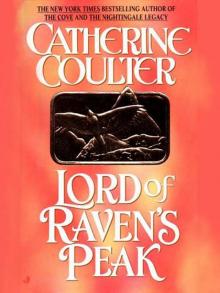 Lord of Raven's Peak
Lord of Raven's Peak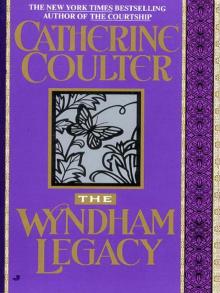 The Wyndham Legacy
The Wyndham Legacy The Strange Visitation at Wolffe Hall
The Strange Visitation at Wolffe Hall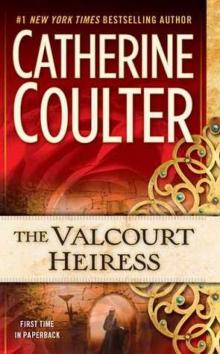 The Valcourt Heiress
The Valcourt Heiress Bombshell
Bombshell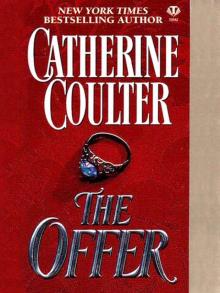 The Offer
The Offer The Edge
The Edge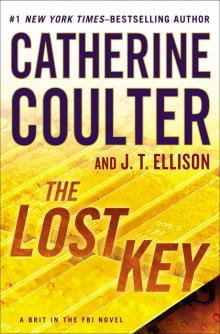 The Lost Key
The Lost Key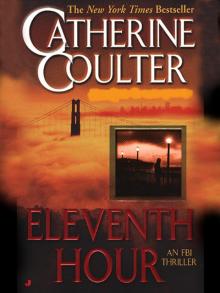 Eleventh Hour
Eleventh Hour Blindside
Blindside Devil's Daughter
Devil's Daughter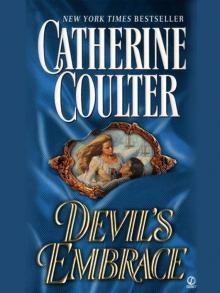 Devil's Embrace
Devil's Embrace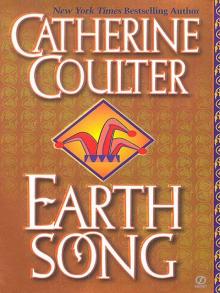 Earth Song
Earth Song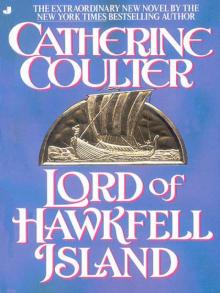 Lord of Hawkfell Island
Lord of Hawkfell Island Calypso Magic
Calypso Magic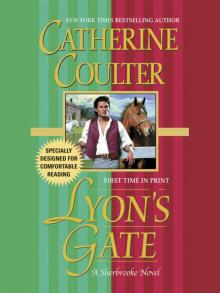 Lyon's Gate
Lyon's Gate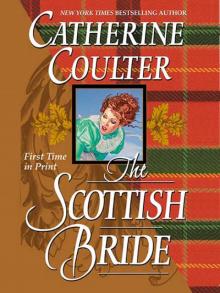 The Scottish Bride
The Scottish Bride Midsummer Magic
Midsummer Magic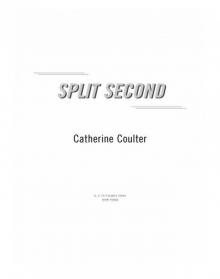 Split Second
Split Second Enigma
Enigma Blowout
Blowout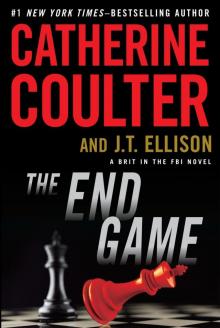 The End Game
The End Game Double Take
Double Take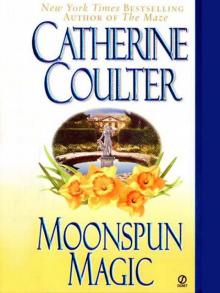 Moonspun Magic
Moonspun Magic The Courtship
The Courtship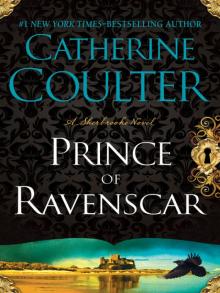 Prince of Ravenscar
Prince of Ravenscar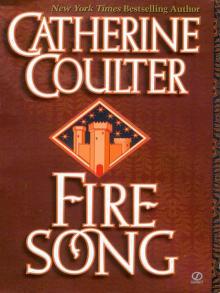 Fire Song
Fire Song Wizard's Daughter
Wizard's Daughter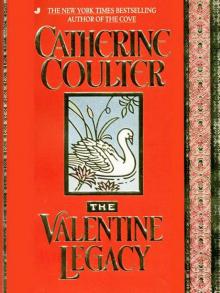 The Valentine Legacy
The Valentine Legacy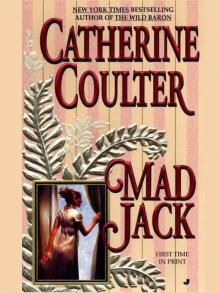 Mad Jack
Mad Jack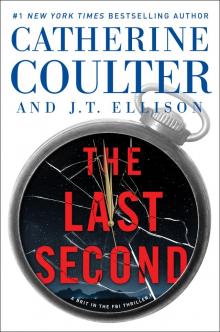 The Last Second
The Last Second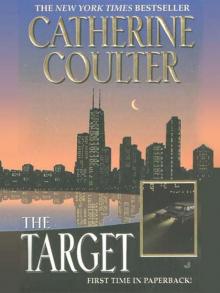 The Target
The Target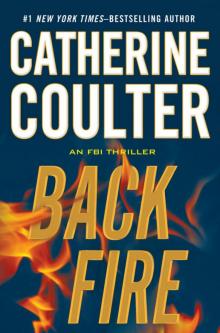 Backfire
Backfire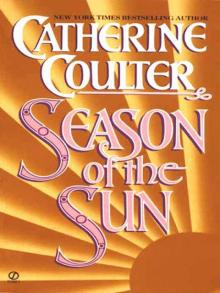 Season of the Sun
Season of the Sun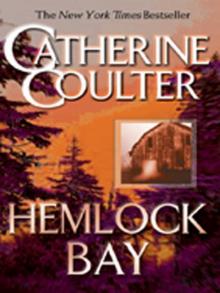 Hemlock Bay
Hemlock Bay Insidious
Insidious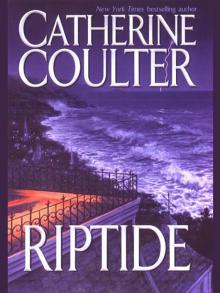 Riptide
Riptide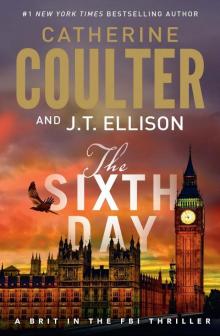 The Sixth Day
The Sixth Day Secret Song
Secret Song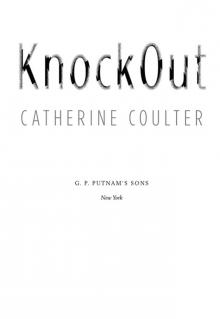 KnockOut
KnockOut Jade Star
Jade Star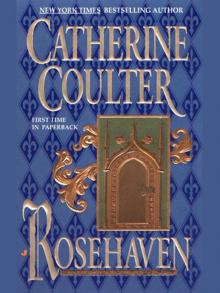 Rosehaven
Rosehaven The Hellion Bride
The Hellion Bride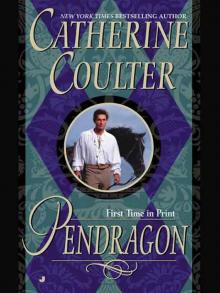 Pendragon
Pendragon Vortex
Vortex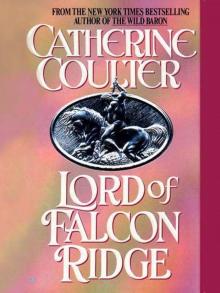 Lord of Falcon Ridge
Lord of Falcon Ridge The Nightingale Legacy
The Nightingale Legacy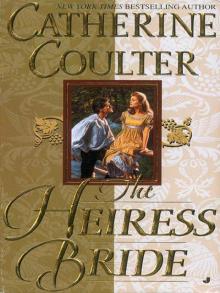 The Heiress Bride
The Heiress Bride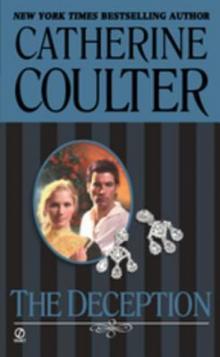 The Deception
The Deception The Maze
The Maze Evening Star
Evening Star Wild Star
Wild Star The Final Cut
The Final Cut Paradox
Paradox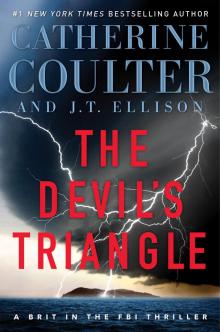 The Devil's Triangle
The Devil's Triangle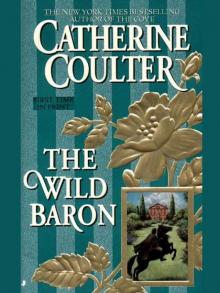 The Wild Baron
The Wild Baron Point Blank
Point Blank Labyrinth
Labyrinth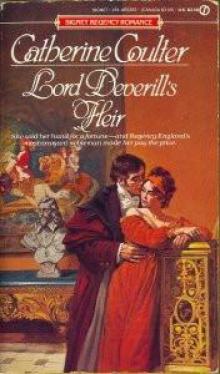 Lord Deverill's Heir
Lord Deverill's Heir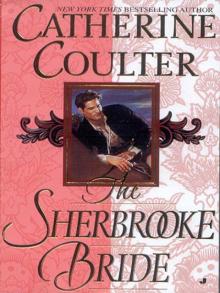 The Sherbrooke Bride
The Sherbrooke Bride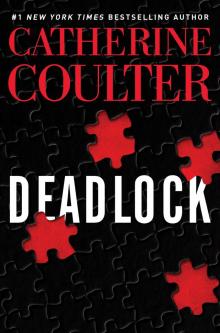 Deadlock
Deadlock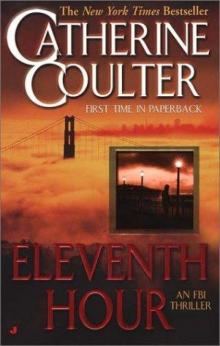 Eleventh Hour f-7
Eleventh Hour f-7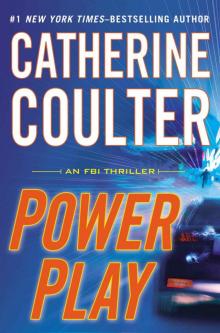 Power Play (An FBI Thriller)
Power Play (An FBI Thriller)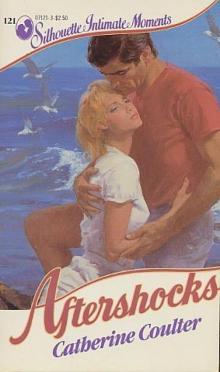 Aftershocks
Aftershocks Sherbrooke Twins tb-8
Sherbrooke Twins tb-8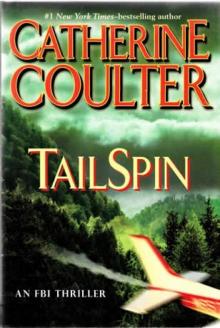 Tail Spin ft-12
Tail Spin ft-12 The FBI Thrillers Collection
The FBI Thrillers Collection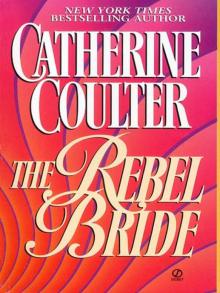 The Rebel Bride
The Rebel Bride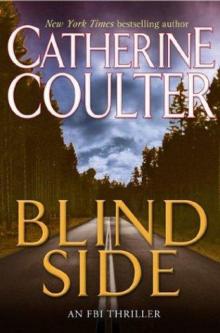 Blindside f-8
Blindside f-8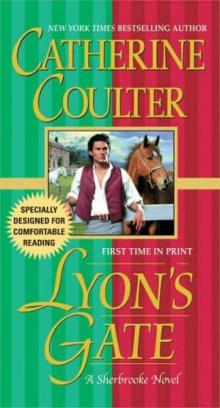 Lyons Gate tb-9
Lyons Gate tb-9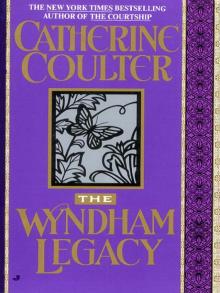 Wyndham Legacy
Wyndham Legacy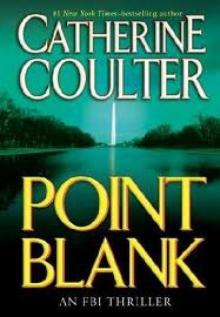 Point Blank f-10
Point Blank f-10 The Prince of Ravenscar
The Prince of Ravenscar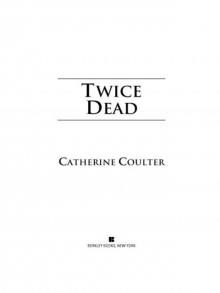 Twice Dead
Twice Dead Night Shadow
Night Shadow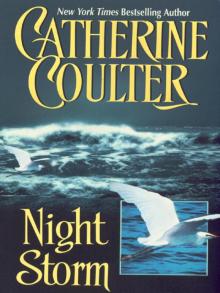 Night Storm
Night Storm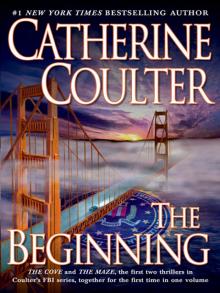 The Beginning
The Beginning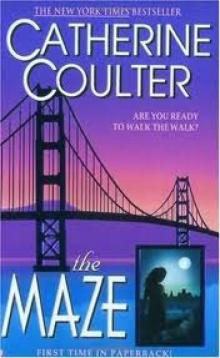 The Maze ft-2
The Maze ft-2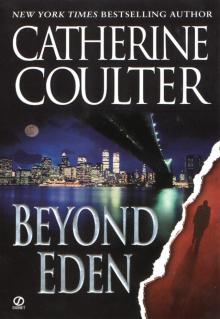 Beyond Eden
Beyond Eden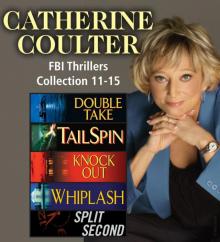 The FBI Thrillers Collection: Vol 11-15
The FBI Thrillers Collection: Vol 11-15 FALSE PRETENSES
FALSE PRETENSES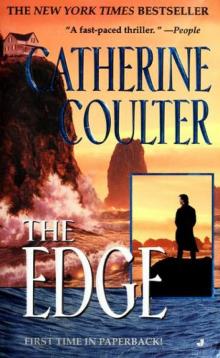 The Edge f-4
The Edge f-4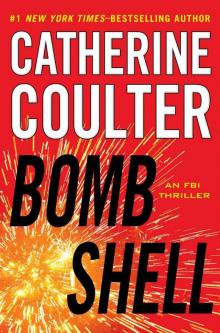 Bombshell (AN FBI THRILLER)
Bombshell (AN FBI THRILLER) The Ancient Spirits of Sedgwick House (Grayson Sherbrooke's Otherworldly Adventures Book 3)
The Ancient Spirits of Sedgwick House (Grayson Sherbrooke's Otherworldly Adventures Book 3)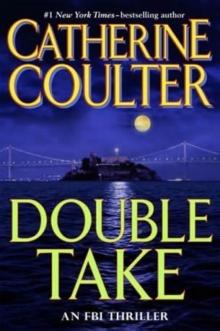 Double Take ft-11
Double Take ft-11 The Heir
The Heir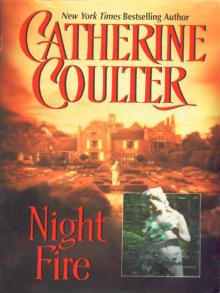 Night Fire
Night Fire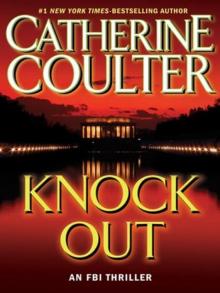 KnockOut ft-13
KnockOut ft-13 Hemlock Bay f-6
Hemlock Bay f-6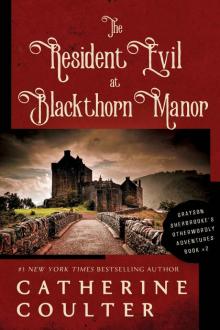 The Resident Evil at Blackthorn Manor (Kindle Single) (Grayson Sherbrooke's Otherworldly Adventures Book 2)
The Resident Evil at Blackthorn Manor (Kindle Single) (Grayson Sherbrooke's Otherworldly Adventures Book 2)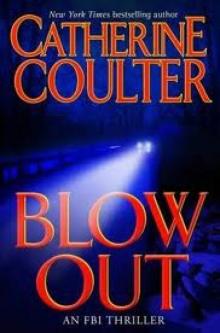 Blowout ft-9
Blowout ft-9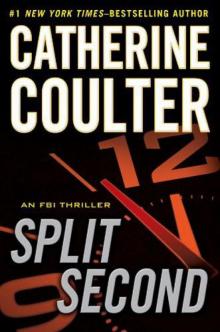 Split Second f-15
Split Second f-15 The Sherbrooke Series Novels 1-5
The Sherbrooke Series Novels 1-5 Impulse
Impulse Paradox (An FBI Thriller Book 22)
Paradox (An FBI Thriller Book 22)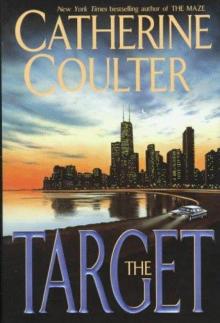 The Target f-3
The Target f-3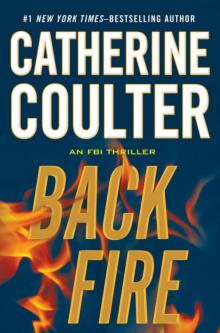 Backfire fst-16
Backfire fst-16 Born To Be Wild
Born To Be Wild Wizards Daughter tb-10
Wizards Daughter tb-10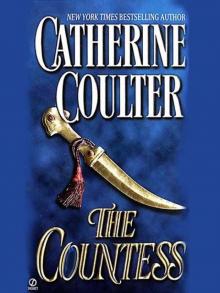 The Countess
The Countess